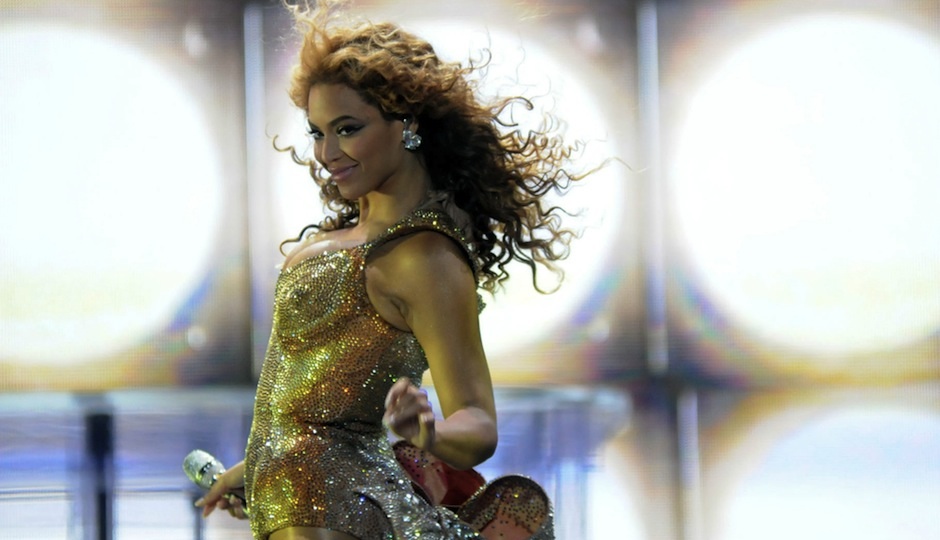Are We Still Drunk in Love With the Real Beyoncé, Acne and All?

Via Shutterstock.
I am guilty: I couldn’t help but click the link, and, BAM! There before my eyes was Beyoncé, sans-Photoshop, acne and all.
Beyoncé is about my age, and this was the first time she actually looked it. She looked real, like a person I’d run into at Starbucks or in line at the Gap, not some dangerously divalicious pop queen who has become synonymous with being, well, to use the title of one of her songs, flawless. The photos that were leaked by the fan site The Beyoncé World (which, to be frank, is quite freaky itself—I encourage you to go check it out), were quickly taken down, but not before hundreds of other blogs scooped them up. They’re just a quick Google search away if you really want to see them, FYI.
It’s the latest in a growing question about how we view women in the media, and, of particular note, how we view women of color, period. The fact that, yes, even I swallowed the bait and couldn’t resist checking out Beyonce’s “normal” face is a clear indication that in our culture, it is still open season on a woman’s beauty, her weight, and her appearance.
News flash: Contrary to popular belief, Queen Bee, while gorgeous and powerfully talented, isn’t flawless. She’s right down here with the rest of us, despite the fact that her “team” and our culture have essentially created her as a social construct. I mean, what does it say when Beyoncé rapped about the now infamous fight between her hubby, Jay-Z, and her sister, claiming that “We escalate, up in this bitch like elevators … of course sometime shit goes down when it’s a billion dollars on the elevator”? To put it lightly, shut the hell up.
There’s no denying that Beyoncé’s image (and not necessarily the physical) has come under recent scrutiny: Her performance of “Precious Lord, Take My Hand” at the 2015 Grammy Awards caused some critics to question why Beyoncé, essentially a social construct, was chosen to perform the song when singer Ledisi, who is credited for bringing the soulful gospel number back into the public’s consciousness via the film Selma, was essentially left out in the cold.
It’s the same sense of uncomfortableness that emerged when L’Oreal was accused of “whitening” Beyoncé in a series of advertisements back in 2008. In short, L’Oreal’s alleged Photoshopping pretty much suggested one thing: Beyoncé literally wasn’t white enough for them.
The fact that we are all “shocked” by the leaked natural photos of Beyonce really shouldn’t be that much of a surprise, given how our culture has succumbed to the ridiculous notion that somehow the pop star is naturally perfect … as the highly altered, “whitened,” mega-mogal that has been created. But what would happen if Beyoncé didn’t rock out her Photoshopped looks, like, every single day?
Would we be “drunk in love” with the real Beyoncé, acne and all?


